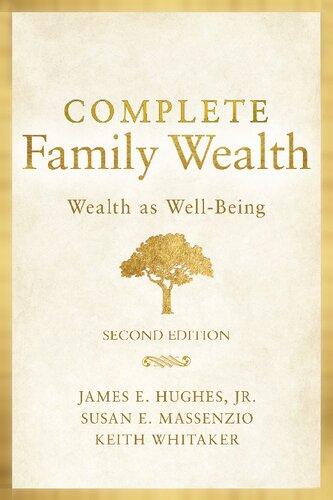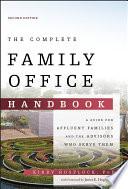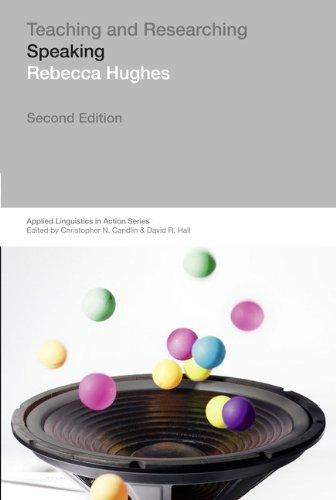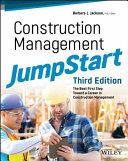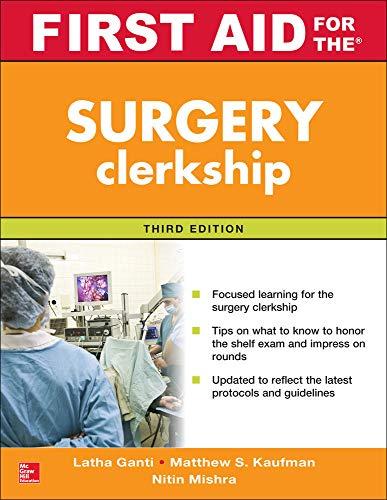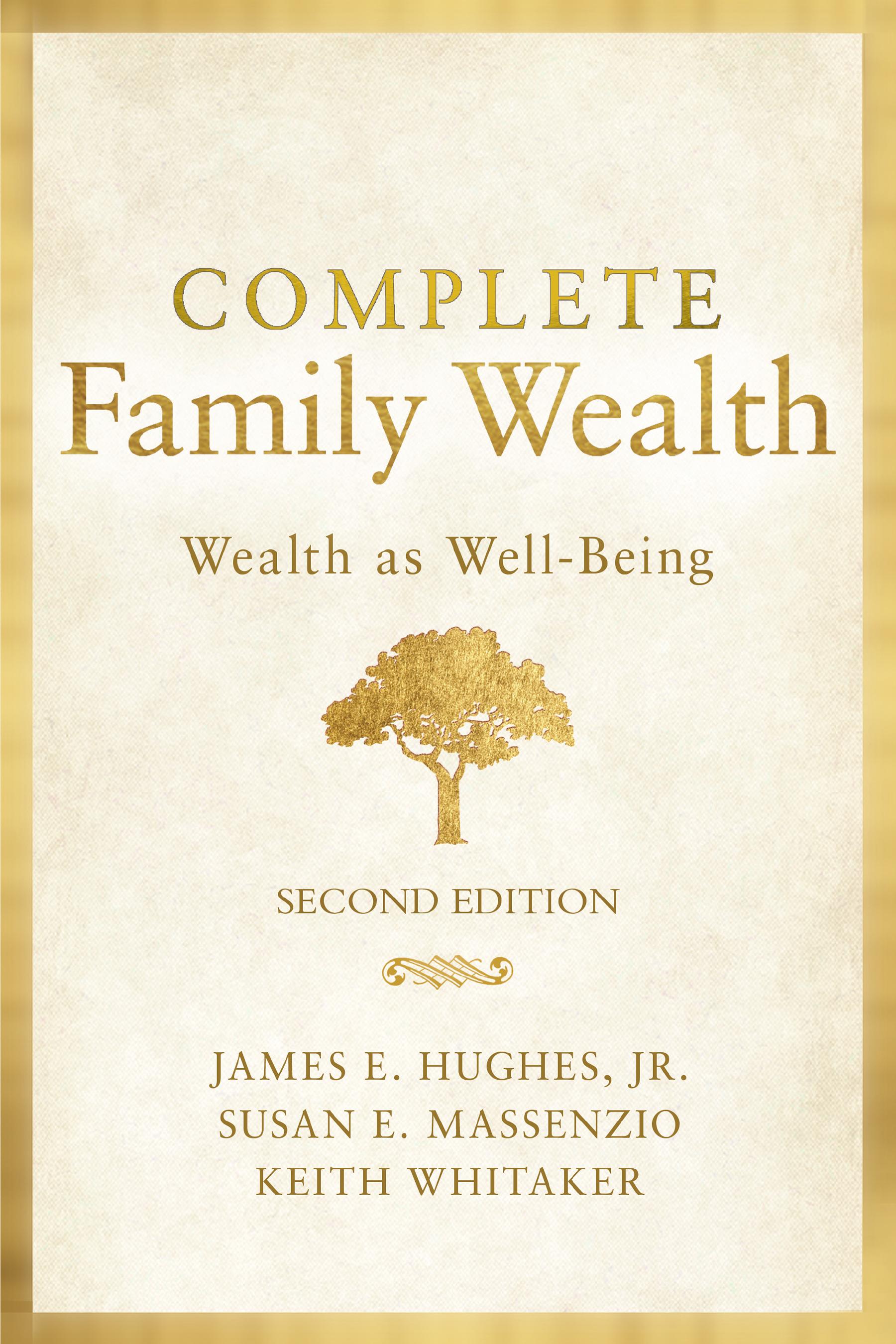Instant digital products (PDF, ePub, MOBI) ready for you
Download now and discover formats that fit your needs...
The Complete Family Office Handbook 2nd Edition Kirby Rosplock
https://ebookmass.com/product/the-complete-family-office-handbook-2ndedition-kirby-rosplock/
ebookmass.com
How To Create Wealth Investing In Real Estate: How to Build Wealth with Multi-Family Real Estate
https://ebookmass.com/product/how-to-create-wealth-investing-in-realestate-how-to-build-wealth-with-multi-family-real-estate/
ebookmass.com
Teaching and Researching: Speaking 2nd Edition Rebecca Hughes
https://ebookmass.com/product/teaching-and-researching-speaking-2ndedition-rebecca-hughes/
ebookmass.com
Algorithmic Essentials: Trading with Python: Your Comprehenive Guide for 2024 Van Der Post
https://ebookmass.com/product/algorithmic-essentials-trading-withpython-your-comprehenive-guide-for-2024-van-der-post/
ebookmass.com
A Tale of Four Worlds: The Arab Region After the Uprisings
David Ottaway
https://ebookmass.com/product/a-tale-of-four-worlds-the-arab-regionafter-the-uprisings-david-ottaway/
ebookmass.com
Construction Management JumpStart 3rd Edition Barbara J. Jackson
https://ebookmass.com/product/construction-management-jumpstart-3rdedition-barbara-j-jackson/
ebookmass.com
First Aid for the Surgery Clerkship (First Aid Series), 3e (October 27, 2016)_(0071842098)_(McGraw-Hill) 3rd Edition Ganti
https://ebookmass.com/product/first-aid-for-the-surgery-clerkshipfirst-aid-series-3e-october-27-2016_0071842098_mcgraw-hill-3rdedition-ganti/
ebookmass.com
American discontent: the rise of Donald Trump and decline of the golden age Campbell
https://ebookmass.com/product/american-discontent-the-rise-of-donaldtrump-and-decline-of-the-golden-age-campbell/
ebookmass.com
Entrepreneurship and Regional Development: Analyzing Growth Models in Emerging Markets 1st ed. Edition Rajagopal
https://ebookmass.com/product/entrepreneurship-and-regionaldevelopment-analyzing-growth-models-in-emerging-markets-1st-ededition-rajagopal/
ebookmass.com
The Building of Chinese Ethnicity in Rome: Networks without Borders Violetta Ravagnoli
https://ebookmass.com/product/the-building-of-chinese-ethnicity-inrome-networks-without-borders-violetta-ravagnoli/
ebookmass.com
COMPLETE FAMILY WEALTH
Wealth as Well-Being
Second Edition
James E. Hughes
Susan E. Massenzio
Keith
Whitaker
Copyright © 2022 by James E. Hughes, Susan E. Massenzio, and Keith Whitaker. All rights reserved.
Published by John Wiley & Sons, Inc., Hoboken, New Jersey. Published simultaneously in Canada.
No part of this publication may be reproduced, stored in a retrieval system, or transmitted in any form or by any means, electronic, mechanical, photocopying, recording, scanning, or otherwise, except as permitted under Section 107 or 108 of the 1976 United States Copyright Act, without either the prior written permission of the Publisher, or authorization through payment of the appropriate per-copy fee to the Copyright Clearance Center, Inc., 222 Rosewood Drive, Danvers, MA 01923, (978) 750-8400, fax (978) 750-4470, or on the web at www.copyright.com. Requests to the Publisher for permission should be addressed to the Permissions Department, John Wiley & Sons, Inc., 111 River Street, Hoboken, NJ 07030, (201) 748-6011, fax (201) 748-6008, or online at http://www.wiley.com/go/permission.
While the publisher and authors have used their best efforts in preparing this work, they make no representations or warranties with respect to the accuracy or completeness of the contents of this work and specifically disclaim all warranties, including without limitation any implied warranties of merchantability or fitness for a particular purpose. No warranty may be created or extended by sales representatives, written sales materials or promotional statements for this work. The fact that an organization, website, or product is referred to in this work as a citation and/or potential source of further information does not mean that the publisher and authors endorse the information or services the organization, website, or product may provide or recommendations it may make. This work is sold with the understanding that the publisher is not engaged in rendering professional services. The advice and strategies contained herein may not be suitable for your situation. You should consult with a specialist where appropriate. Further, readers should be aware that websites listed in this work may have changed or disappeared between when this work was written and when it is read. Neither the publisher nor authors shall be liable for any loss of profit or any other commercial damages, including but not limited to special, incidental, consequential, or other damages.
For general information on our other products and services or for technical support, please contact our Customer Care Department within the United States at (800) 762-2974, outside the United States at (317) 572-3993 or fax (317) 572-4002.
Wiley also publishes its books in a variety of electronic formats. Some content that appears in print may not be available in electronic formats. For more information about Wiley products, visit our web site at www.wiley.com.
Library of Congress Cataloging-in-Publication Data:
ISBN: 9781119820031 (hardback), ISBN: 9781119820048 (epub), ISBN: 9781119820055 (ePDF)
Cover Design: Wiley
Cover Image: Wiley
To my father, James E. Hughes, Sr., an extraordinary adviser to families and the wisest man I know; to my mother, Elizabeth Sophie Buermann Hughes, who first taught me about family and who keeps creating family; to my professional partner Anne D’Andrea, who after 32 years still keeps me sane and helping and for whose help I am beyond grateful; and to my partner in life and learning, Jacqueline Merrill, who put her arm through mine.
James E. Hughes
To my mother, Viola, for giving me a vision of what a complete life, well spent, is. Thank you.
Susan E. Mazzenzio
To my family, my friends, and my loving partner—my complete wealth.
Keith Whitaker
What is very easy? To advise another.
What is very hard? To know yourself.
Thales, the first philosopher
An Invitation
Welcome to the journey. We hope that in reading Complete Family Wealth you will discover new ideas and practices that will enable your family to grow its qualitative and financial capitals long into the future.
Complete Family Wealth marks a stage in the journey of we three coauthors, at times individually, more recently together. As we invite you to join us, we begin with a short description of our paths thus far.
A Welcome from James (Jay) Hughes, Esq.
Welcome back readers of our previous books, and welcome new readers! For those of you pilgrims wearing your scallop shells and round hats and carrying your staffs, walking with us to Santiago to discover how to help your families flourish, please sit down, take off your regalia, and join Keith and Susan and me in the next steps of our common pèlerinages. For those of you just joining, please ask those who are already on this journey for their help and their stories of success in overcoming the obstacles their families face to flourishing.
As many readers already know, my journey to help my family deal with the proverb of “shirtsleeves to shirtsleeves in three generations” began when I was four years old. I overheard my mother, Elizabeth Buermann, in an agitated state, explaining to my father, James E. Hughes, her concerns about money and her worries about the proverb. Her worries continued until her death at the age of 95.
Why? Because her father, my grandfather, had gone bankrupt in the Depression. She had come home one day to find a “For Sale” sign on the front lawn of her home in Newark, New Jersey. Her family until then had
Complete Family Wealth: Wealth as Well-Being
large financial resources inherited from her grandfather, a German immigrant, an inventor, and a successful industrialist. Not knowing why that sign was there, she went into the house and found her mother. Her mother told that her father had gone bankrupt by virtue of depositing his money in his father’s now busted savings and loan company. Then her mother shared with her another terrible truth. My grandmother had only a high school education, had been the single cosseted child of devoted parents, and till that day had “help” in the house. She told my mother that, as my grandfather “did not know how to work,” she was going to work the next day. My grandmother worked for 50 years, into her mid-80s, as a receptionist in a hospital to provide for her family. So it is quite understandable that my mother had these fears of the proverb: she had been living it every day since her youth.
My mother’s recital of these realities to my father made me want to help her put those fears aside. It also made me appreciate how emotionally pernicious the effects of the proverb are.
As readers of Family Wealth know, I met the proverb again many years later, in 1974, when I was asked by the sons of an enormously successful businessman in Singapore to come visit their father.
I was naturally curious why I, a still very wet-behind-the-ears privateclient attorney, was being invited to travel halfway round the world at substantial cost to the family when there must be excellent legal counsel available in Singapore. When the day of the meeting came, I still had no idea why I had been invited. After entering his office and solving, over tea, all the macroeconomic problems of the world, I was still wondering. Finally, this worldly-wise man said, “Mr. Hughes, you are probably wondering why I invited you here. We Chinese have a proverb, ‘Rice paddy to rice paddy in three generations.’ I don’t want that to happen to my family. Can you help us using the techniques of families in America to solve this problem?” I was happy to discover that I could help him.
In the years since 1974, as I have traveled to meet with families around the world, I have heard the same idea expressed in varying ways. The shirtsleeves proverb turns out to be culturally universal, capturing a great truth about wealth and human behavior.
As a result, the proverb has been the question that has dominated my personal and professional life.
One of the most wonderfully positive parts of my journey has been to be a part of my parents’ creation of a flourishing family from the ashes of both of theirs. Today we are a family, including in my case, wonderful additions
from my wife Jackie’s family. We are a flourishing, tightly knit group of three living generations with a strong bond to the gifts of my parents’ generation. Our tribe meets my test of a flourishing family: every generation has the contact information of their first cousins and, if they called any one of them, their voices would be immediately recognized. Do we face obstacles to continuing this flourishing? Yes, we do. Are we facing them head on? Yes, we are.
To face the proverb’s challenges, I set out to meet, learn from, and befriend remarkable professionals who share my passion to serve families. These friends and colleagues are too many to name here. Two of them, Susan and Keith, joined me in this effort to produce Complete Family Wealth, and with them I wrote two other books, The Cycle of the Gift (2013) and Voice of the Rising Generation (2014). We came together, over 10 years ago, at a time when I had started to doubt whether I had anything more to say. Our conversations opened new vistas to me of ideas and of hope. I came to see myself in the true elder role: not leading or doing but rather convening those who wish to learn and encouraging those who seek to act.
I am now in my 75th year of life and 50th year of practice. I am deeply humbled to see that, over the past 20 years, our little books have taken on lives of their own. They have done so—and I hope that Complete Family Wealth will do so—because you, the reader, will, I believe, find at least one suggestion here that will prompt you to have the courage to believe that the shirt sleeve proverb can be avoided. I believe it can!
A Welcome from Dr. Susan Massenzio
I was born into a family of second-generation immigrants to America. Resilience, hard work, and community were values that were woven into the fabric of my family as well as the families of many other immigrants.
I was fortunate to have loving grandparents and parents who led their lives with integrity and generosity. I learned at a very young age that money was a means to independence, choice, and the ability to be generous with people whom one loves. I was also gifted with good health, a good mind, and an adaptive attitude. I inherited much qualitative wealth.
My grandfather was very resourceful and made several good real estate investments, which he left equally to his four children. My father started a family business with his brother that had its share of success and hard times. I witnessed firsthand the realities of a family business: the challenge
Complete Family Wealth: Wealth as Well-Being
of succession without adequate planning, the conflicts that ensued, and the impact on the business created by spouses who married into the family.
My mother was a remarkable woman—she lived to be 101 years old— who decided to take on a second job as the family business was failing, to provide extra money to send me to college. Upon graduation, I worked in a state institution for children with special needs and then I transitioned to teaching special needs children in a public school. It was during my time teaching children with special needs who were living with their families that I saw the impact of having a child with special needs on the family. This experience prompted me to go on to graduate school with a focus on family dynamics.
For several years, I taught undergraduate and graduate courses in organizational psychology with a focus on the application of psychology to organizations and families. For most of my career, I have focused on the application of psychological theories and practices to positively impact leadership development in public and private companies, foundations, and families.
I believe that my professional journey has come full circle. It has gone from personal involvement with family business, to professional work with families with children with special needs, to corporate leadership, and then to families with the special need of wealth, to benefit family members and the communities of which they are a part.
What money I have, I have earned. I know the pride that comes from earning one’s own money and the joy of being able to use it to help others. I have also been fortunate to have enjoyed the peace that comes from the sense of having enough.
In recent years, I have had the good fortune to work with two wonderful professionals: my loving partner, Keith Whitaker, and our dear friend, Jay Hughes. I have also been able to experience the joys and challenges of great corporate leaders and enterprising families with significant wealth. My hope is that I will be able to continue to have a positive impact on the lives of others through my own life experience, education, and commitment to cultivating qualitative wealth.
A Welcome from Dr. Keith Whitaker
My journey into this field began with my 17th birthday. I grew up in a middle-class home. I didn’t think much about money; we didn’t have too much or too little. Then, the afternoon of my birthday, my mother took me
aside and said, “I want you to know that your grandfather has been very successful in business, so you can do whatever you like in your life.”
I remember feeling at the time that this was an odd comment. I already believed I could do whatever I liked, with or without money.
However, learning about my grandfather’s financial success did make me feel different than I had before. I felt that more was expected of me. “To whom much is given much shall be required.” When I went off to college— which my grandfather paid for—I made a point of bringing him my transcript each semester, to show what I had achieved. With the gift, I felt a responsibility.
I also felt free—free to pursue a subject that truly interested me, classical philosophy, without focusing on my expected salary. I didn’t have any student loans. I pursued a teaching career without the fear of being destitute.
These are some of the positive elements of the experience of learning about family wealth at an early age. But I found that there are also negatives.
For example, the flip side of freedom is a sort of lightness. This is a sense that no matter what I did, I could make up for bad choices or not deal with the frustrations that most other people face. For example, I loved philosophy but not the many tiresome parts of the job of teaching, and so I left it. Since that time, I do have some regrets, which money can’t eliminate.
The flip side of feeling special is that you can become a mark. People with money often fall in with others who seek them out for their money. I was taken advantage of at times, and it was deeply hurtful.
The flip side of feeling gifted is entanglement. As a recipient, I felt I should give a return to my family by taking on various responsibilities around wealth management, trusteeship, service on the foundation board, and so on. These responsibilities took up a lot of time, taking me away from sorting out my own dreams. While I learned much from this work, it was not my true calling. It took a long time for me truly to become my own person.
When Jay invited me to join him in this journey, I knew that we would make excellent partners. We share the classic understanding of financial capital as a tool to pursue the ultimate qualitative goal: the inquiry into and the practice of living well.
The same is the case with Susan, whom I invited to join me in the journey of work and life over a decade ago. Little did I know then that I would learn from her that our true resources are our hearts and minds, and that our greatest gift is time, used well.
The Path Ahead
To orient you in this journey, we have organized the book into four main parts:
Part One (Chapters 1, 2, and 3) lays out the subject matter under discussion, the “what.” They address what we mean by family, wealth, and enterprise.
Part Two (Chapters 4 through 11) discusses the host of roles crucial to family enterprise flourishing. The “who” includes the rising generation, parents, grandparents, spouses, elders, trustees, and beneficiaries, advisers, and friends.
Part Three (Chapters 12 through 23) moves to the “how,” specific practices that families can use to grow their complete family wealth.
We end with a conclusion on individual flourishing that aims to give you best wishes and thoughtful guidance as you continue your own journey and, finally, with an epilogue that seeks to peer a little way into the future.
For this second edition, we have also added two appendices: the first, a curriculum for teaching family members about trusts; and the second, a review of practices that can help your family navigate difficult times, such as the COVID pandemic.
Again, feel free to read these chapters in order or pick and choose based on your interests. Each one stands on its own.

